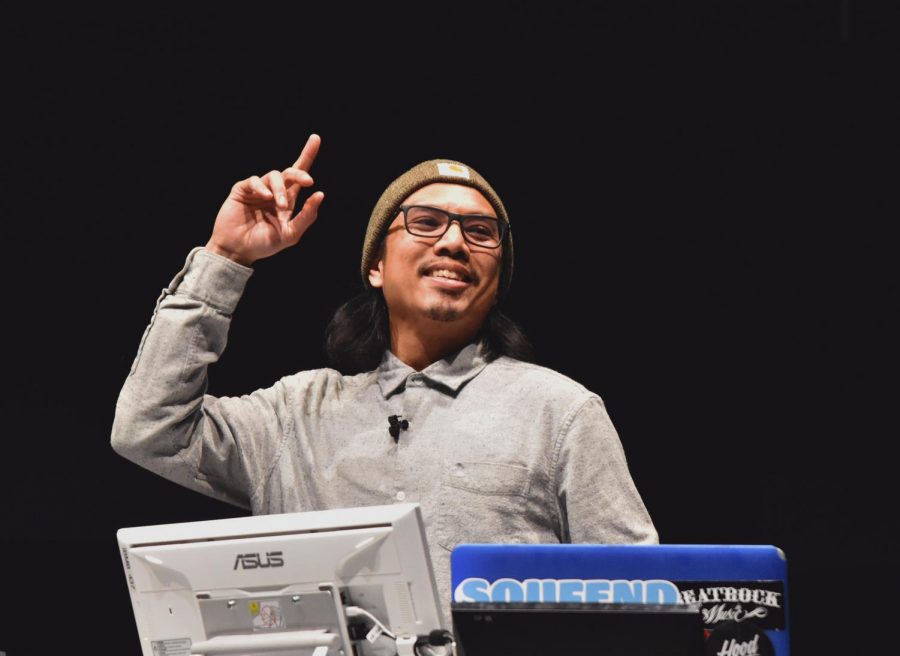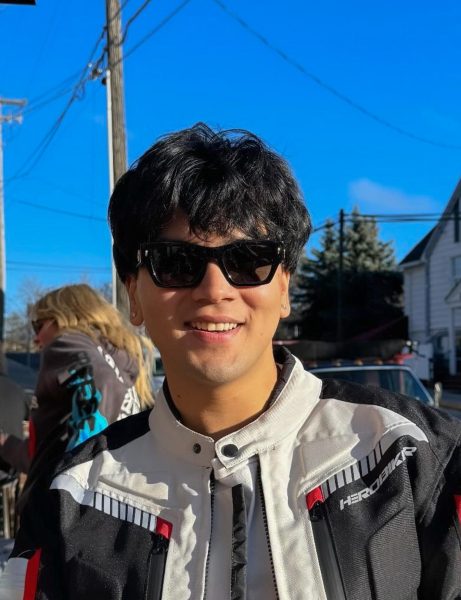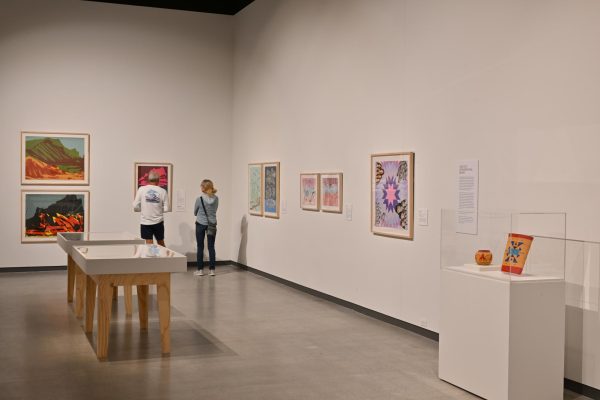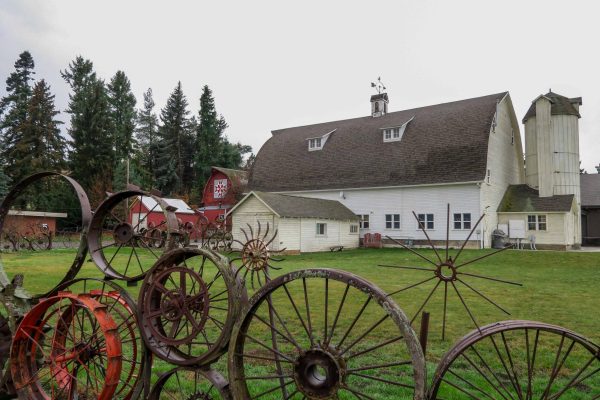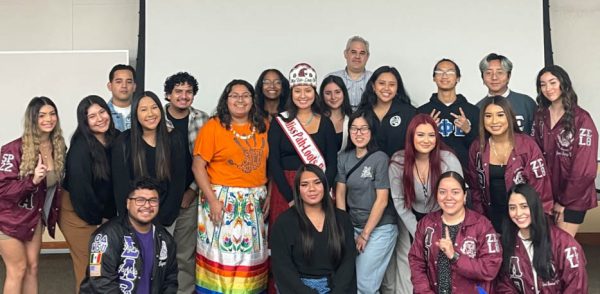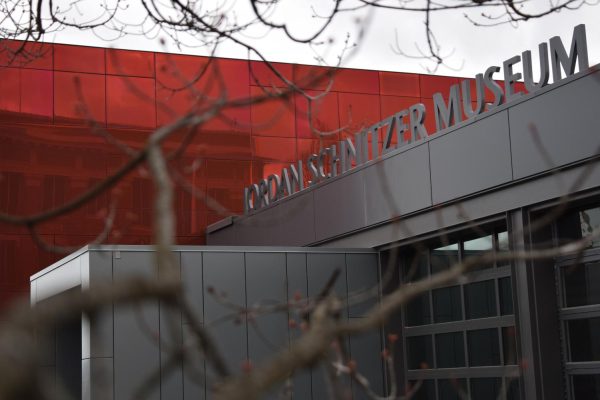Geo Quibuyen encourages personal storytelling
Quibuyen said rap can bring light to social injustice
BONNIE JAMES | The Daily Evergreen
Rapper and activist Geo Quibuyen, also known as Prometheus Brown, speaks about nostalgia and sci-fi Wednesday night in the SPARK building.
March 29, 2018
The sun setting outside, students began to fill into the round, modern lecture hall of the SPARK building and take their seats.
They applauded as Geo Quibuyen entered and turned on rap to amp up the crowd.
Quibuyen, also known as Prometheus Brown, is a Hawaii-raised, Seattle-based Filipino-American rapper and writer whose exploits range from music to restaurants. Some of his projects include Food & Sh*t, a Filipino pop-up restaurant, and Hood Famous Bakeshop, in addition to an online photography project called “Rappers W/ Cameras.”
His talk, titled “Synergy, Solidarity, and Storytelling,” focused on his immigrant background and shared his story on generational activism, cultural competency and social justice.
Quibuyen started with nostalgia, its place within the millennial generation and how it can influence us today. He explained his experience with nostalgia in music. He presented two philosophies: One states that the past was better than where we are now, while another says we need to keep moving forward and keep the past in the past.
He explained how nostalgia intertwines with colonialism and cultural imperialism.
“All of the culture we recognize as regular originates from a creative class, the underclass…” he said, “things like cheese and wine, which couldn’t have been created by people with resources.”
Quibuyen explained the softening of history. As a way of dealing with collective trauma, he said, society has ignored how minorities and the poor fared in supposed “golden times.”
“Why are we talking about nostalgia as if it means the same thing to different people?” he asked the audience.
While Quibuyen discussed problems of our past and the need to be conscious of them, he said he has great hope for the future.
He discussed a song called “Oscar Grant” and its lyrics of “Shoot the cops, shoot the cops, pull out your cameras and shoot the cops.” He said it tells the story of Oscar Grant, a black man who was killed by Bay Area Rapid Transit police. He explained that, as the lyrics imply, regular people with cameras amplified Grant’s story.
“By letting everybody know what was happening, we, not the media, not the news, and not the government, we kept the police accountable,” he said, “and we called for change.”
Quibuyen finished by encouraging the audience to share the stories of others and to tell their own stories.
“If we don’t,” he said, “someone else will tell it for us. And they’ll f— it up and make a lot of money from it, and they’ll convince themselves and others that it’s their story.”


